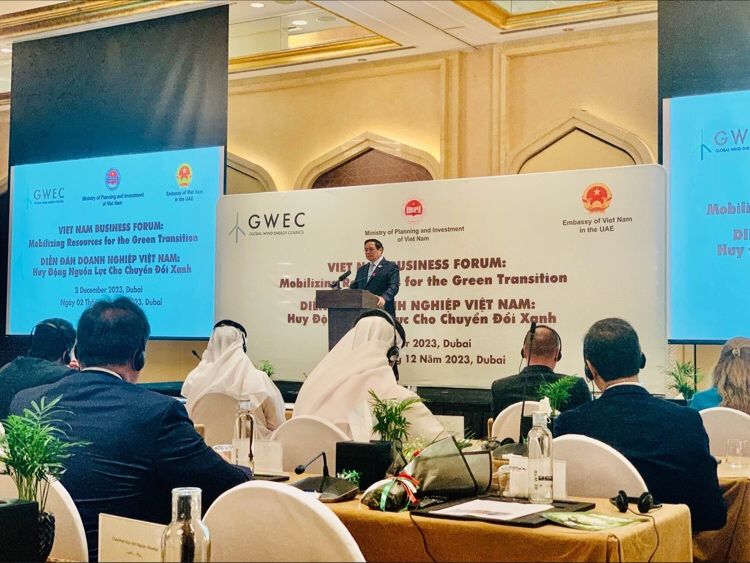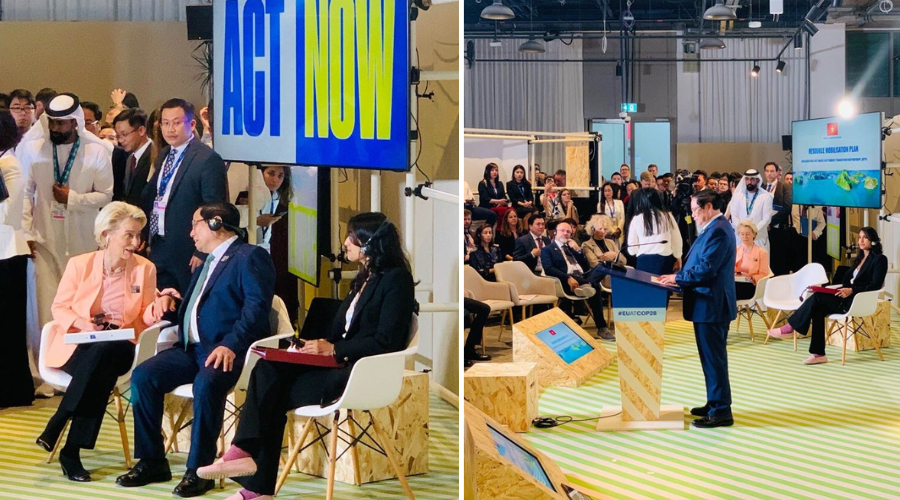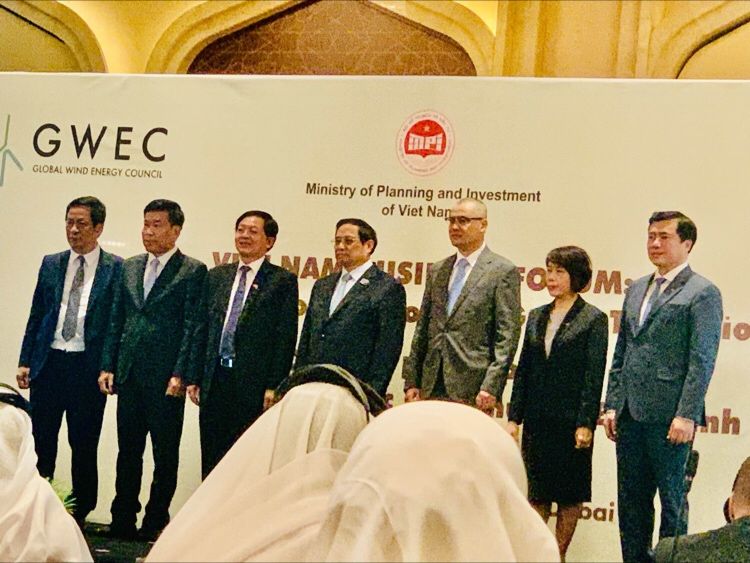We are miles from the goals of the Paris agreement and minutes to midnight for the 1.5 degree limit, but it is not too late,” United Nations Secretary-General António Guterres said. “We can — you can — prevent planetary crash and burn.”
The UN took aim at fossil fuels, and Vietnam does too.
At #COP28, Vietnam shared its plan to use a hefty $15.5 billion fund to significantly reduce its reliance on coal. This marked the official start of the Resource Mobilisation Plan, a crucial financial roadmap.
Thanks to an agreement made last year with foreign investors, mostly from G7 nations, Vietnam is set to receive a substantial $15.5 billion. This financial support, largely in commercial loans at market rates, is meant to boost the use of renewable energy and cut dependence on coal over the next three to five years.
The funding is part of the broader "Just Energy Transition Partnership" program. Initiated by wealthier nations, this joint effort serves as a financial support system for economically challenged developing countries, aiding them in speeding up their shift away from coal for the sake of combating climate change. Other countries involved in this collaborative effort include South Africa, Indonesia, India, and Senegal, highlighting the program's worldwide impact.
As Vietnam's orchestrating its departure from coal, the nuanced interplay between economic imperatives and environmental stewardship begs scrutiny. How might this financial model influence similar endeavors on the international stage, and how would it shape the future of sustainable finance? Only time will unfurl the complexities of this intricate financial and environmental ballet.








